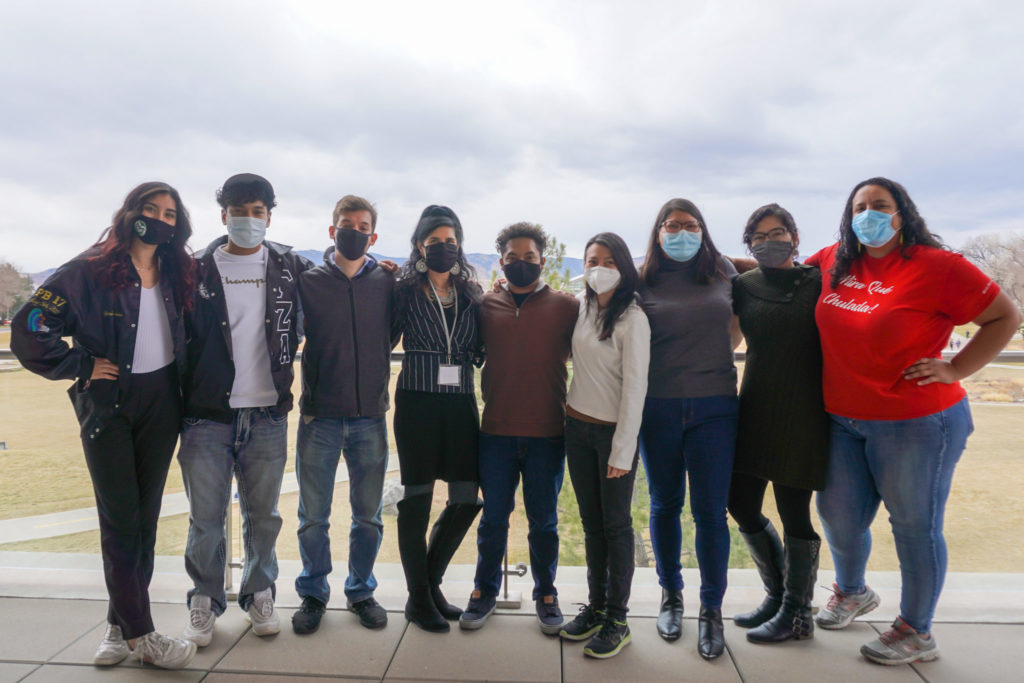
For many students from minoritized backgrounds, finding opportunities that engage them both academically and culturally can be a challenging task – especially in predominantly White populated schools.
Nearing its 7th year, Caminos – a Spanish literacy precollegiate and career readiness educational pathway program developed in part by the Colorado State University School of Education, CSU’s El Centro Cultural Center, and Fort Collins High School – seeks to solve this problem by affirming Latinx and Indigenous high school students through mentor- and femtorship. The mentors and femtors, a term used to acknowledge female and feminist labor and non-hierarchical mentoring, all come from predominantly Latinx minoritized backgrounds, serving as representation for the mentees and femtees that they serve.
At the “Proud to Be Me (Orgullosa/o/x de ser Latina/o/x)” Student Scholar Leadership Conference, the Lory Student Center opened its doors to hundreds of Fort Collins High School students, inviting them to share their research projects celebrating Latinx and Indigenous culture and history. The event also provided the opportunity for the high schoolers to hear from their Caminos fem/mentors who shared accounts of their personal, professional, and academic journeys as students of color at CSU.
Harnessing cultural wealth
The conference began with the high school students taking the stage to present their research projects on various impactful court cases in Latinx and Indigenous history, presenting in both English and Spanish.
This experience not only gave the Caminos high schoolers the opportunity to learn about cultural trailblazers but also ignited an interest in research and gave them the confidence to thrive in academia.
“Caminos high schoolers analyzed, synthesized and learned the power of their gente (people) banding together to resist harmful racist educational practices,” School of Education Associate Professor Antonette Aragón said. “Many of these cases involved racist linguicism, anti-immigration, and denial of free and democratic public education. Learning the value of ‘resistant capital,’ the Caminos students explored community cultural wealth.”
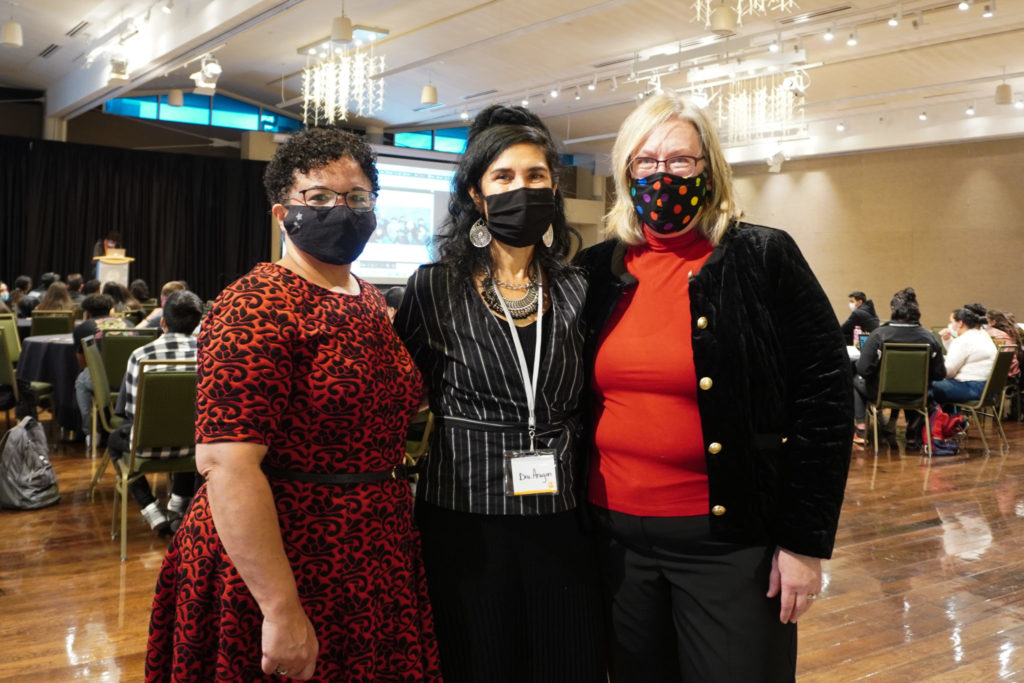
Each aspect of the conference was examined and displayed through the lens of the Community Cultural Wealth framework; a model developed by Tara J. Yosso, professor in the Graduate School of Education at the University of California, Riverside. According to Yosso’s article, “Whose culture has capital?: A critical race theory discussion of community cultural wealth” in Volume 8 of the Race Ethnicity and Education journal, the model “presents a critical race theory to challenge traditional interpretations of cultural capital.”
Femtor and conference co-emcee, Ariana Gloria-Martinez, witnessed how much of an impact this new, affirming perspective has on the Caminos CSU mentees and femtees.
“We work from the understanding of our community cultural wealth – aspirational, navigational, social, linguistic, familial and resistant capital – which encourages ways to bring that understanding to the high schoolers to see what they’ve already got inside of them to move forward and reach their goals,” she said.
By approaching culture and education from an asset-based, non-deficit perspective, the conference inspired the Caminos fem/mentees to see themselves at a higher education institution.
‘Proud to be me’
The conference and the Caminos program place an emphasis on pride and belonging. For both the high school students and their fem/mentors, the conference provided a sense of empowerment.
“Caminos empowers me as a mentor by giving me a space to actively be involved in our community,” Caminos mentor and Spanish major Manuel Marquez-Avalos said. “Being present for these kids reminds me to show up for myself as well. I hope this program empowers my mentees by being a form of guidance and support with people who truly care about our students.”
Alongside co-emcees Gloria-Martinez and Marquez-Avalos, the Caminos mentors and femtors also shared their counterstories with the audience of young leaders.
“The definition of counterstories is the embodiment of personal knowledge and experience by countering the ‘normal, neutral’ white-dominant experiences of schooling,” Aragón said. “Sharing their cultura (culture), the fem/mentors significantly relate to the Caminos high schoolers.”
Find the Caminos fem/mentors’ testimonies from the event below:
“Though it was nerve-racking a bit in the beginning, in the end, being able to share our personal counterstories with the femtees was so exciting because of the pride we got to have standing up there and sharing everything it has taken for us to get to where we are today and how they can do the same thing and that as leaders already, they have such great opportunities to achieve their dreams not only for themselves but collectively as a people.
– Ariana Gloria-Martinez, Department of Forest and Rangeland Stewardship graduate research assistant
“Not only has Caminos given me a platform to share my stories, but it’s shown me just how wonderful my generation is and has given me hope in seeing all of us succeed and change the world for the better.”
– Manuel Marquez-Avalos, second year Spanish student
“The Caminos conference was a great experience for me. I got to share a story about some hardships that I’ve faced and let the students know that they too can reach their goals. It was awesome to be able to be a source for the kids to ask questions and learn about opportunities that college can hold for them.”
– Brandaise Martinez, Department of Chemistry Ph.D. student
“It was relieving and empowering to share my story. I’m one to keep my hardships to myself and dislike opening up about them, but I felt relieved to finally be able to discuss them and I know it was going to help inspire and give hope to the students sitting in the audience that day as many of them have/are experiencing similar situations. I felt empowered because I was showing that I was able to navigate the hardships and be successful.”
– Roxanna Martinez, Department of Chemistry Ph.D. student
“The conference was a wonderful experience. I was very impressed with the section where CSU students shared their stories. Those stories were so powerful and could help students from Fort Collins High School understand what is possible for themselves and their future.”
– Khuc Phan, School of Education Ph.D. student
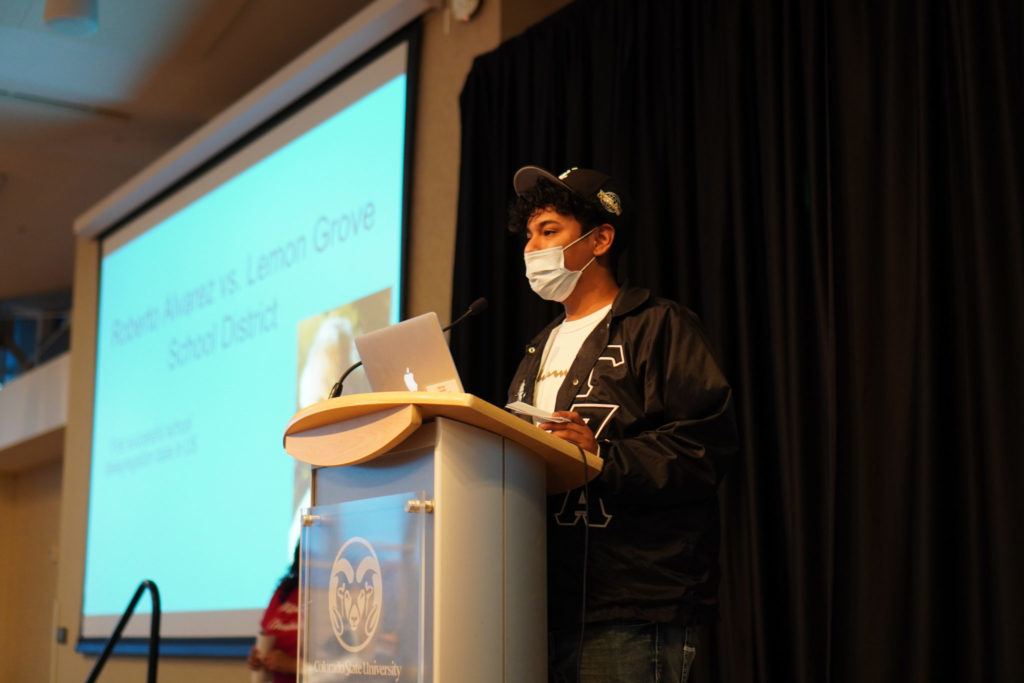
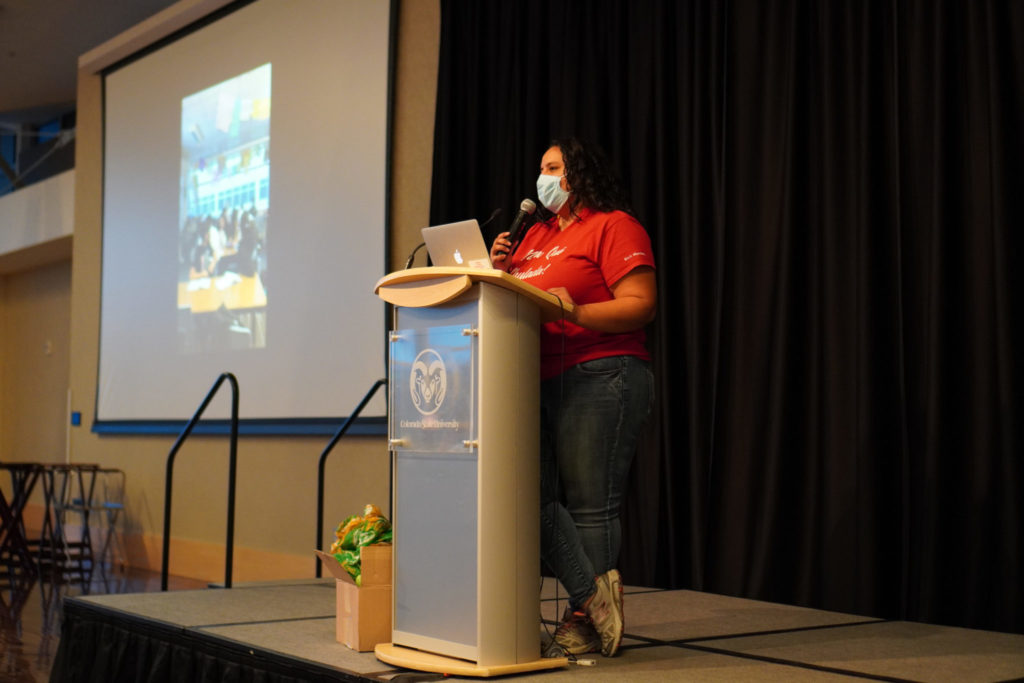
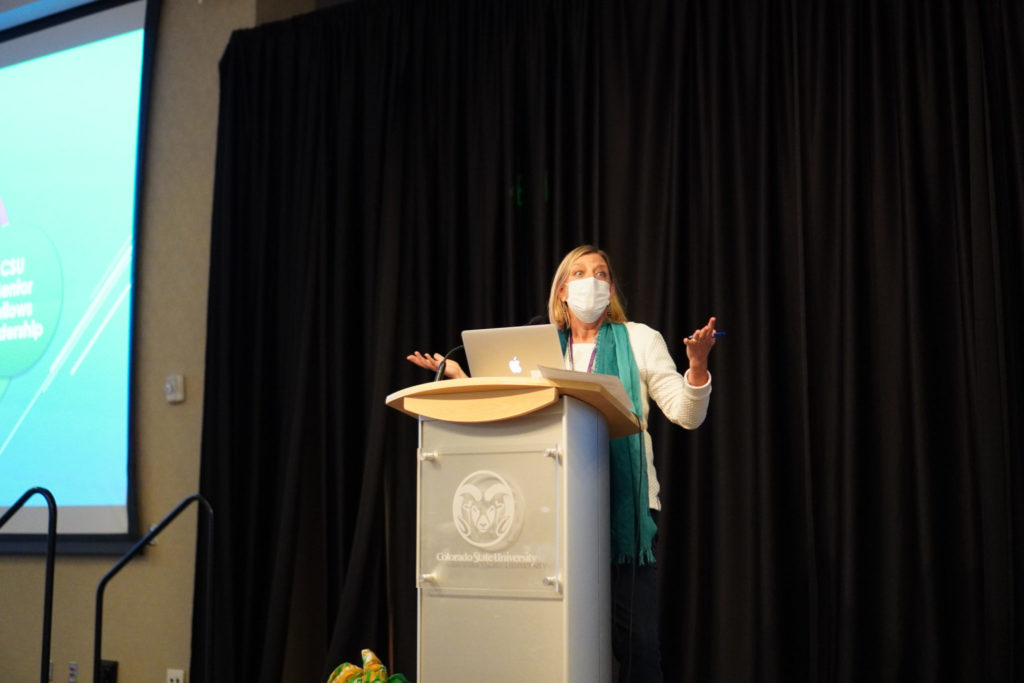
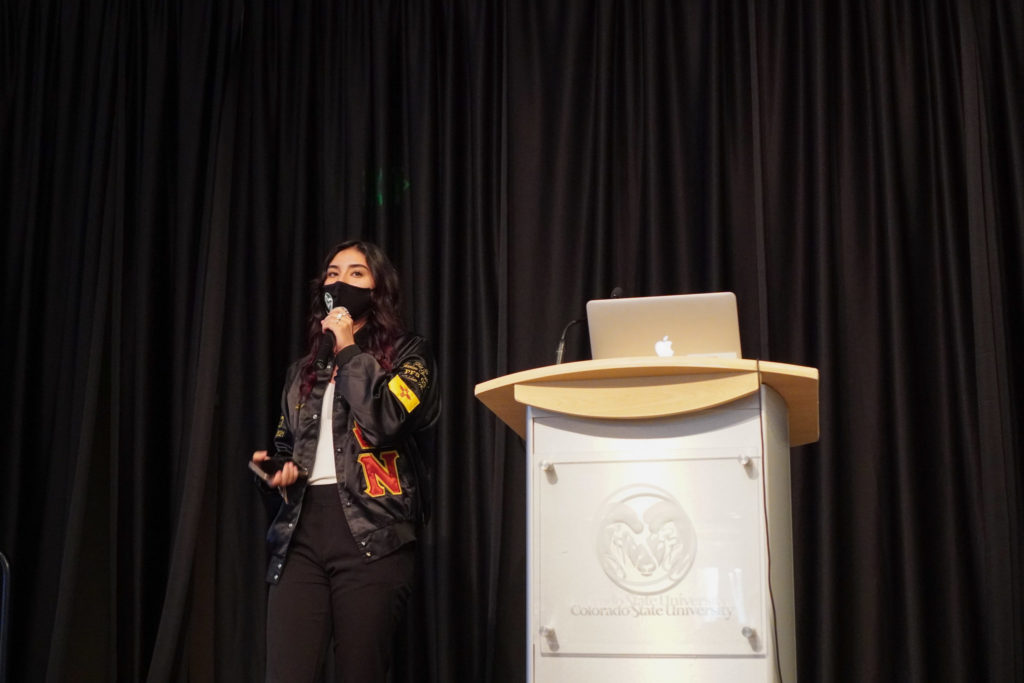
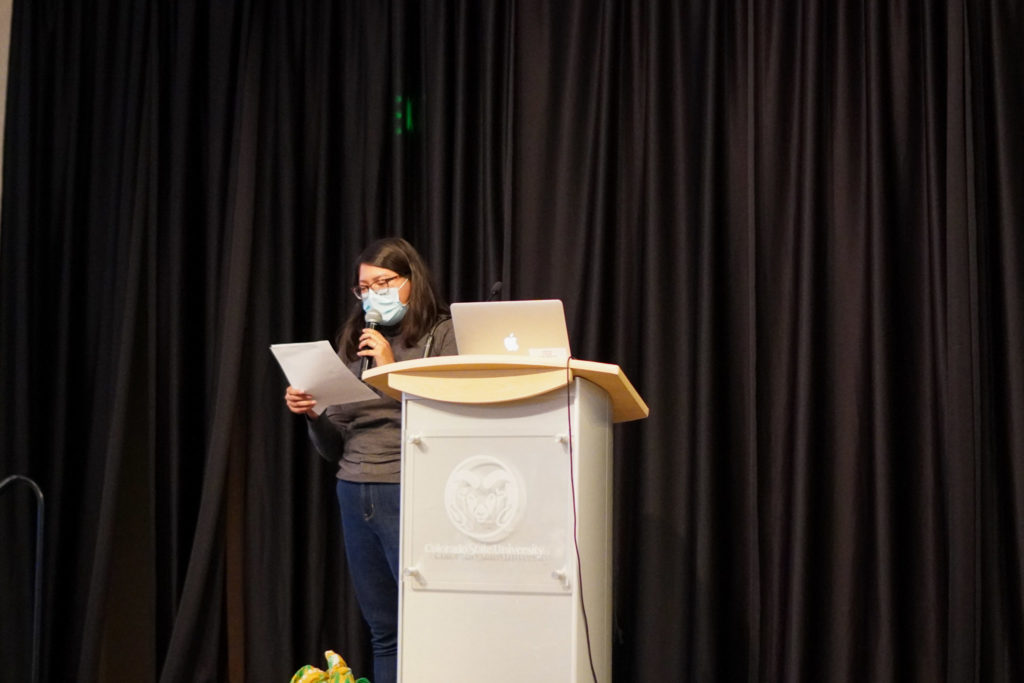
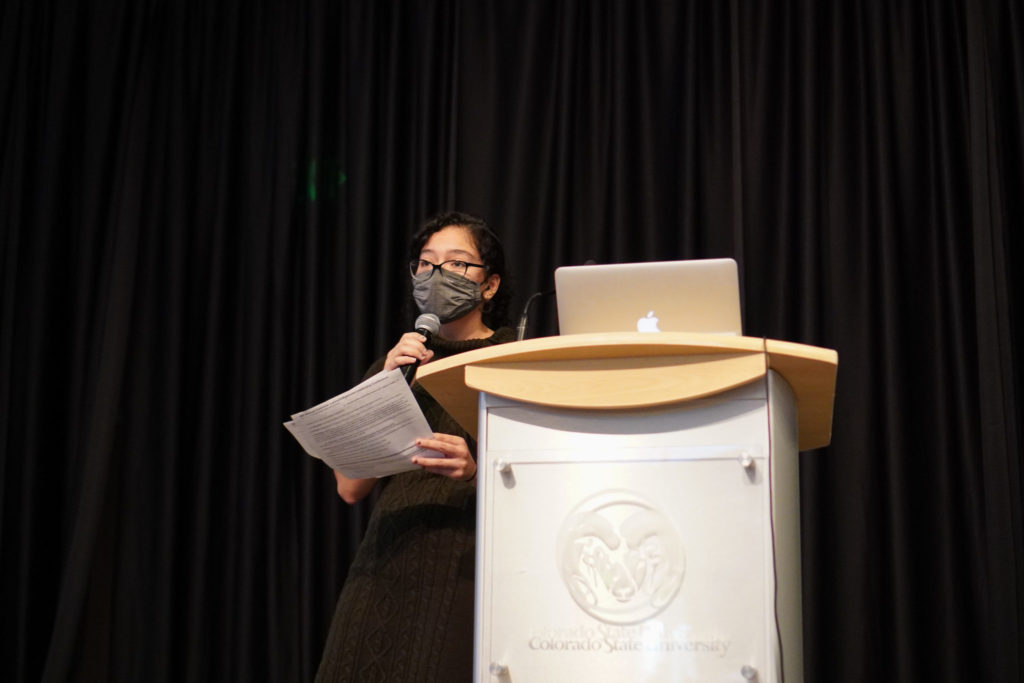
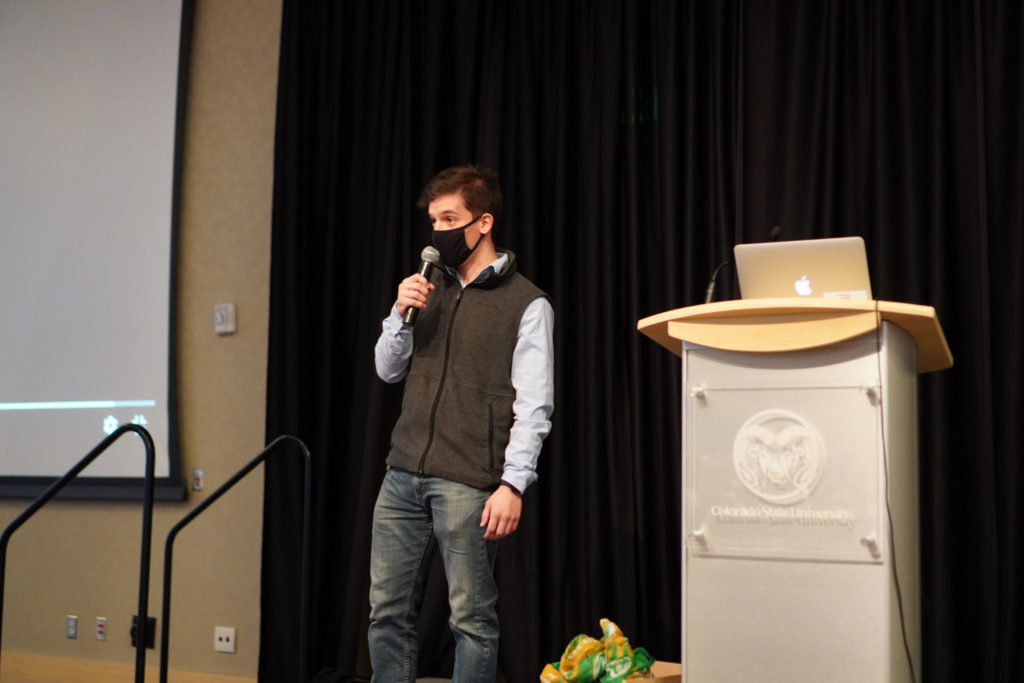
Leaving legacies and paying it forward
As the Caminos fem/mentors helped mold the high schoolers into leaders, they also came to realize their own growth.
“I believe through this Caminos program, we all will leave a continuing legacy that centers our diverse Indigenous/Latinx communities as the knowledge-holders, creatives, and leaders that we have always been who will continue to pursue brighter and more just futures for all of us through pursuing higher education and/or other pathways to achieve our dreams for not just ourselves, but our people as well,” Gloria-Martinez said.
By teaching and learning from the perspective of community cultural wealth and enrichment, everyone within the Caminos program has the opportunity to grow into the best version of themselves. Learn more about the Caminos program on the CSU School of Education website.
Special thanks to the Bohemian Foundation grant, School of Education, Fort Collins High School, CSU’s El Centro Cultural Center, Warner College of Natural Resources, CSU SLiCE, and the CSU Bookstore for providing support for the 2021 Caminos “Proud to Be Me (Orgullosa/o/x de ser Latina/o/x)” Student Scholar Leadership Conference.
The School of Education is part of CSU’s College of Health and Human Sciences.